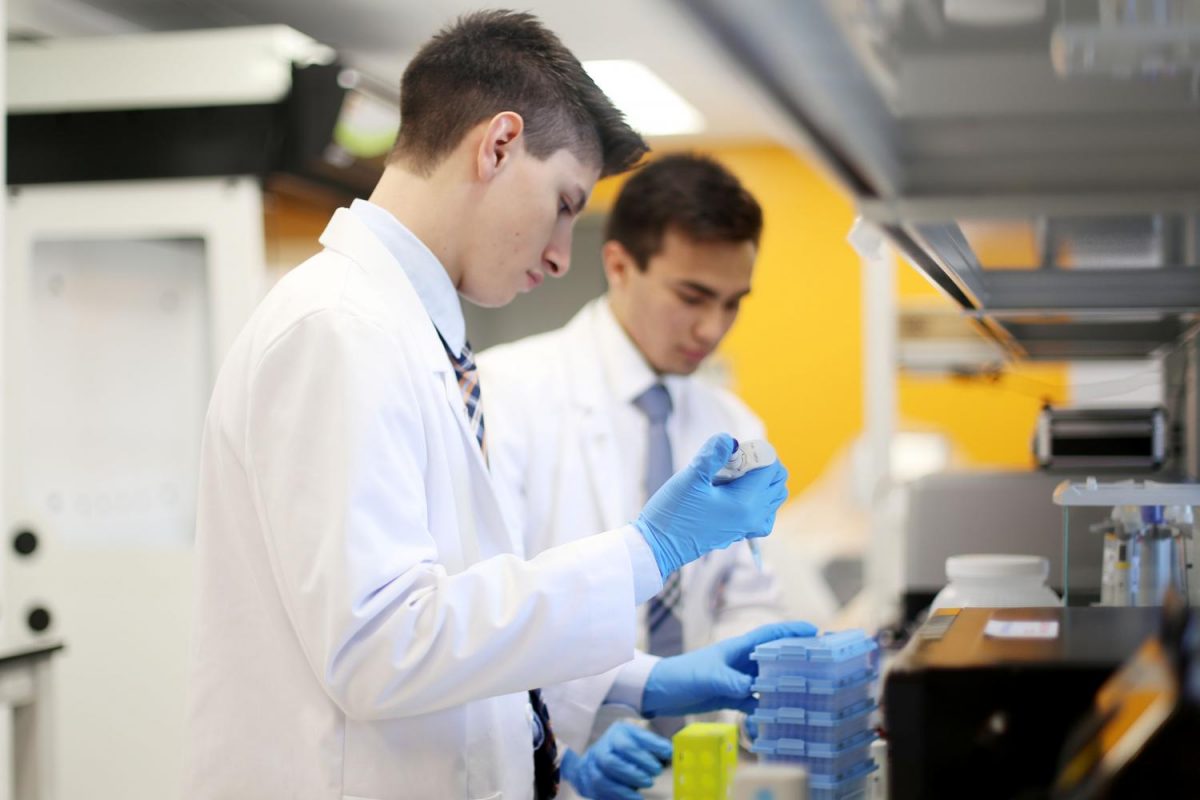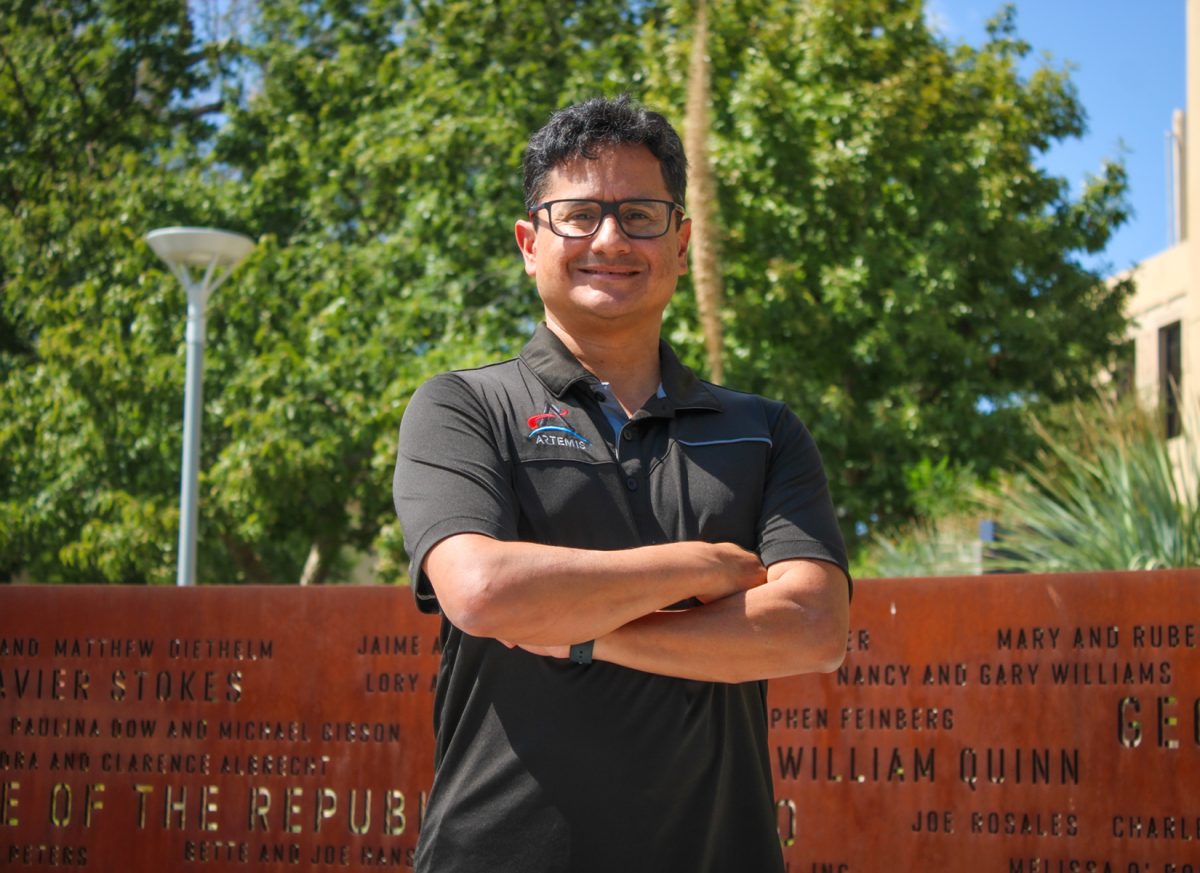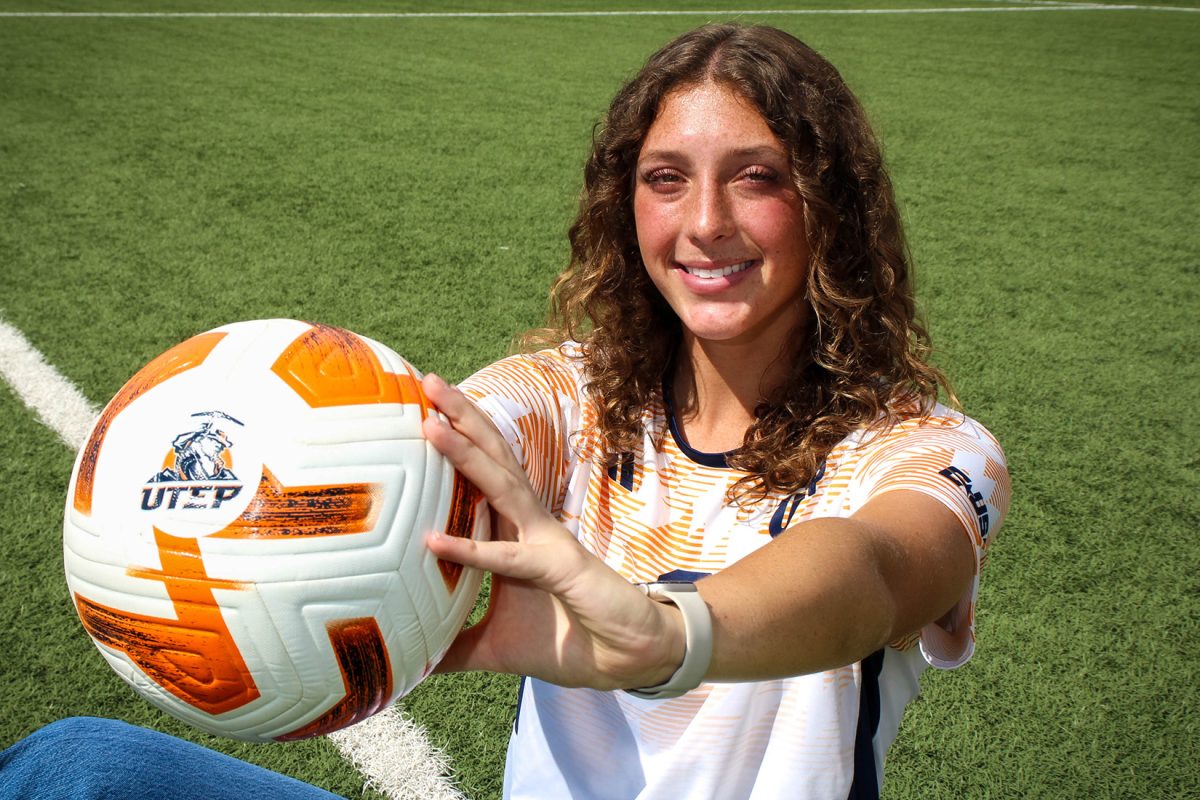EDITOR’S NOTE: The School of Pharmacy does NOT require students to be able to speak spanish to be admitted to the PharmD program. The only Spanish requriement is that a student must take three SCH of college-level Spanish as a prerequisite, or take the CLEP exam to receive college-level spanish credit. The story has been corrected.
After two years of work and planning, UTEP opened a School of Pharmacy in efforts to improve the opportunities for students who are searching for a future in the pharmacy field.
Now almost two months into the program, students and professors in the school have started to truly settle in and feel comfortable with the program.
Pharmacy doctoral student Albert Nava said that as he was preparing to apply for school, UTEP made the announcement. He said he was relieved for not having to pay thousands of dollars more for an education he could now receive at home.
“It’s actually very funny, my grandparents said they would pray every day so that they could create a pharmacy school here,” Nava said. “I was very excited because I was going to get the chance to pursue my dreams and at the same time I would lessen the financial burden on my family.”
José O. Rivera, Pharm. D., was selected as the founding dean of the school and said that UTEP students who are looking for a job in the pharmacy field will receive a different teaching approach.
“This the culmination of a long journey,” Rivera said. “It’s exciting that we can develop our own curriculum with our own ingredients of what we think is the best for these pharmacists in terms of the training and the education they will receive.”
Rivera said that the School of Pharmacy at UTEP is unique because speaking Spanish an important aspect of the program.
“If you want to serve the (El Paso) population, you need to be able to communicate with them,” Rivera said. “We need to serve our people, and yeah we could use translators, but we believe it’s more effective if our pharmacists have the ability to speak and understand the language and culture of our patients.”
Pharmacy doctoral student Presciliano Ortega said he is trying to become a fluent Spanish speaker because he feels discouraged when he cannot explain something in that language.
“It’s hard, but I understand the importance of language and communication in this kind of job,” Ortega said. “A patient may know something about their health in their native language, but not in English. This why we need to understand more languages because we don’t want to cause an overdose or the death of a patient.”
Within the curriculum, students in the school have to volunteer, do service learning and leave El Paso for a period of anywhere between two weeks to six weeks.
“It’s not only about math and science. Our students will leave to a clinic outside our immediate region because they have to learn about different people and cultures,” Rivera said.
Before UTEP decided to start a standalone School of Pharmacy, the school had a cooperative program with the University of Texas at Austin, where students receive a doctor of pharmacy degree from UT after completing 50 percent of the curriculum in El Paso and the other half in Austin.
Despite having the cooperative program with UT for more than 18 years, Rivera said this program was not achieving a stable financial situation and the demands for healthcare providers in El Paso.
“It was not financially viable,” Rivera said. “Also, a lot of students from El Paso ended up going to other states to go to pharmacy school, and they ended up in so much debt because of the high price of tuition.”
Rivera said the School of Pharmacy will help with El Paso’s shortage of pharmacists.
“In El Paso, we have close to 60 pharmacists per every 100,000 people in our population, and in the state, the average is 90,” Rivera said.
Rivera also said that budget cuts from the state legislature, which have affected many education departments in Texas, had a negative effect on the School of Pharmacy. Rivera said the School of Pharmacy received $5.2 million instead of the $7 million he was expecting from the legislature.
Rivera had to adjust to the cuts and was unable to make changes to some of the classrooms that are not yet where they’re supposed to be in terms of technology and size.
“We also wanted to purchase research equipment and hire additional staff, but we had to prioritize,” Rivera said. “We were hoping to move faster, but now we’re going to have to hold back and see how to bring in more money.”
Ortega said being part of the first class scheduled to graduate holds a lot of responsibility he is willing to take.
“It feels great to say ‘hey, I earned to wear this coat.’ It makes you feel that you’re doing something that will help you and your future, but also help others and their future,” Ortega said. “This is something that we had been dreaming and working for, and now we have the chance to work on our goals.”









